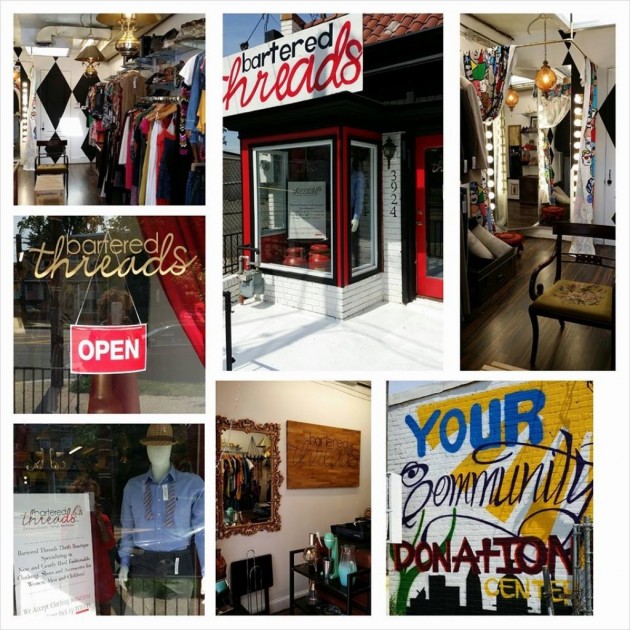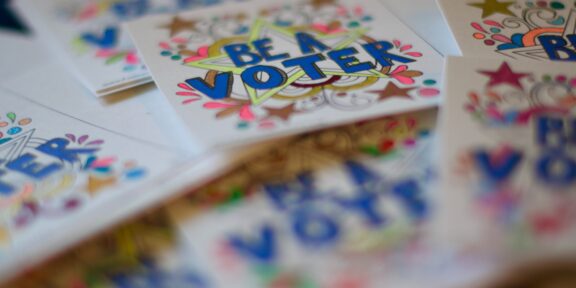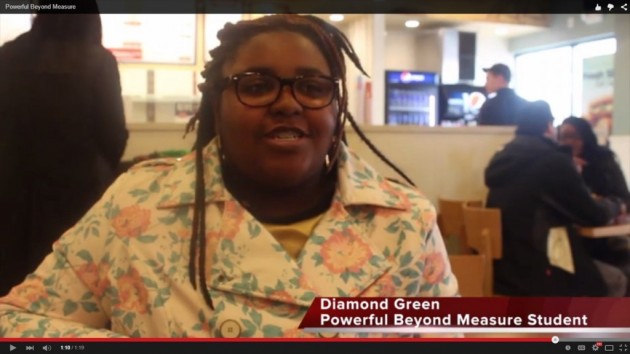Senior Tells Struggles In Going from an HBCU to a Majority School
Students at historically black colleges and universities (HBCUs) may often wonder how the other half lives–what it’s like for Blacks at majority-White schools, in other words.
Black populations at HBCUs may exceed 90 percent; majority schools may have populations that are less than five percent Black. Racially, the makeup is as different as night and day and, in today’s world, may be a reason to question if that promotes a sense of isolation or even matters at all.
Jeff Wright, a Black marketing major at Washington’s predominantly White Georgetown University, once attended an HBCU. He says it definitely matters, and describes the difference far more vividly.
“Imagine this,” he said. “Imagine a big bowl of milk. Okay, that’s Georgetown University. Now, put about 10 pieces of Cocoa Puff cereal bits in the bowl of milk. Those are me and the other maybe nine Black folks I see when I go on campus.”
Wright, who says he encounters racism at Georgetown, then began to relate his college experience and what brought him to where he sat, at the dining table of the three-bedroom Georgetown house he shares with two White, male roommates.
Wright transferred to Georgetown after completing his freshman year at Florida Agricultural and Mechanical University (FAMU) on a full academic scholarship. Wright, also accepted by Howard and Hampton universities, said he had dreamed only of attending HBCUs as a high school student.
But he wasn’t pleased in Florida.
“[Being at Florida A&M] was terrible,” Wright said. First of all, it isn’t even an accredited university. If I had graduated from there, the degree wouldn’t have been as good as a sheet of toilet paper.”
Wright was enrolled in the School of Business and Industry, which was unaccredited at the time.
“In my mind I thought that it was going to be great,” he continued. “Living in an environment where all the Black people are either established already or are working to achieve their dreams. I didn’t know I was going to have to deal with all the unnecessary things that I did.”
Wright’s long-time friend Robert Doyle, a Howard University senior, vividly recalls accounts of his displeasure. Doyle said Wright enjoyed the student environment, but couldn’t accept the shoddy way he felt things were run.
“I remember Jeff calling me at all hours of the night to complain about FAMU,” Doyle said. “Jeff would call and say, ‘Man, Bobby, I love the other freshmen and people that I live around, but the administration is horrible. All the secretaries are snapping their necks at me, and they are messing up my paperwork. They’re acting just like the stereotypical Black men and women I didn’t want to believe they were.'”
A disenchanted Wright made up his mind to transfer, and though Doyle tried to sway him to attend Howard, he says his friend was too turned off by HBCUs to give it a chance. By spring 2004, Wright had already been accepted by the University of Maryland and Georgetown.
“I picked Georgetown, knowing that it was a highly respected school,” Wright said. “It’s a predominantly White school, but I figured I’d have to trade in the culture I left behind at FAMU for the overall quality I was going to get and am getting now.”
But Wright now says he has a love/hate relationship with Georgetown, where only about seven percent of undergraduate students are Black. In his first Georgetown semester, Wright experienced situations he said reminded him of the segregation era.
“The thing is, a lot of the kids at Georgetown are so ignorant that they don’t even realize when they are saying something racist,” Wright said.
Wright offered an example of a time he stood in line in the cafeteria last year, listening to rock band U2 on his iPod. A female, who happened to be White, tapped him and asked what he was listening to, only to laugh upon hearing it was “her band.” She asked if he shouldn’t be listening to “Tupac or something.”
Wright’s cousin William Rivera, a Howard University print journalism major, corroborated his sentiments about Georgetown, recalling a party where he was mistreated. Wright, invited to the party by the friend of a host he didn’t know, invited Rivera, dismaying the hosts.
“We get over to the house where the party is, and the hosts start acting extra funny when we knocked on the door,” Rivera said. “One guy said that they weren’t playing ‘any of your kind of music here,’ and another guy said that there weren’t ‘any forties to drink or fat asses to smack in this party.’ Jeff was so mad that he wanted to fight every last guy in that was in that house. After I calmed him down, we just went back to his house and chilled.”
Wright said realizing people have such views has made him self-conscious about fulfilling any Black stereotypes, to the point that he alters his own food choice.
“The last thing I’m going to eat when I’m in the cafeteria at Georgetown is chicken. I know there’s going to be someone in there that’s going to whisper to their friend, ‘All those Blacks do is eat chicken.’ Now, when I want to have fun, I just come down to Howard. At least, I can be my complete self there.”
On this particular Friday afternoon, Wright decided to kickoff his weekend at a house party held by Howard students.
At 6:10, the G2 metro bus to Howard arrived almost directly in front of Wright’s house. Thirty minutes later, he arrived on Howard’s campus. As he stepped off of the bus, he took a deep breathe and exhaled.
“It feels good to be home,” Wright said, smiling.
Finding something to eat was the first thing on the agenda. He walked to Howard China, a chicken spot on Gresham Place.
Wright, wearing a dramatically oversized white t-shirt, a pair of Air Jordan sneakers and a Chicago Bulls fitted hat, ordered four chicken wings and fried rice.
Watching him eat, one would think that he hadn’t seen food in years. His lips are smacking, and he is elbow deep in the rice and wings.
“Man, I promise you, I don’t get to eat like I want to when I’m at school. I’m too guarded to let myself loose.”
After getting a good meal under his belt, he met up with Doyle, Rivera and a group of other friends he acquired in his many visits to Howard.
Handshakes, hugs, smiles and laughs were exchanged before they went off to the party, where they endured no hassles or snide remarks.
“Have a ball, fellas,” the host said as he admitted Wright and his buddies. Good music and a large crowd propelled the party past 3 a.m.
But, at the end of the night, Wright’s friends made their way back to Howard residence halls. Wright, alone once more, waited on the last G2 bus to take him back to Georgetown.
“Damn, man,” Wright said with slight irritation. “I’ve got to go back to G-town and sit in that bowl of milk again.”




